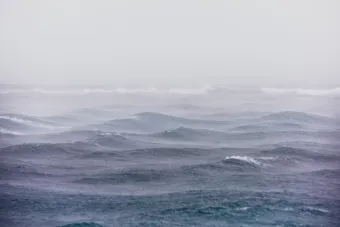
- A study led by the National Oceanography Centre (NOC) has revealed that rain is the main trigger of seasonal stratification in shelf seas.
- Stratification impacts the spring phytoplankton bloom, which underpins the food web.
- The findings may have implications for fisheries as shelf seas account for 90% of fishery productivity.
- The open-access paper is published in Nature Communications.
A new study led by NOC has revealed that rain is the main trigger of seasonal stratification in shelf seas. Stratification is the natural separation of the water column, with warm water layered on top of colder water. This process impacts the spring phytoplankton bloom, an exponential algal growth event that underpins marine food webs.
![Physical controls on stratification onset[chart]](/files/pictures/FIG.3%20%281%29_0.png)
Prior to this study, it was thought that the onset of seasonal stratification was caused only by temperature, due to more heat going into the surface ocean towards springtime. Storms were thought to delay the onset of stratification due to increased mixing from strong winds, but data collected by autonomous ocean robots has now revealed that stratification can in fact be triggered by rain from passing storms.
A model used by scientists in the study uncovered that rain triggered stratification 88% of the time from 1982 to 2015 and that stratification onset could be further controlled by large-scale pressure changes across the North Atlantic.
This suggests that in the future changing storm patterns could affect both the timing and intensity of the spring phytoplankton bloom, thereby impacting the food web. This new understanding has important implications for fisheries as shelf seas, the shallow seas closest to our continents, account for 90% of the global fish catch.
Jenny Jardine from the Marine Systems Modelling (MSM) group at NOC, and Lead Author of the paper explains: “Not only does this research have significant implications for marine ecosystems, but this research will further inform how changing storm activity will impact shelf sea environments in the future.”